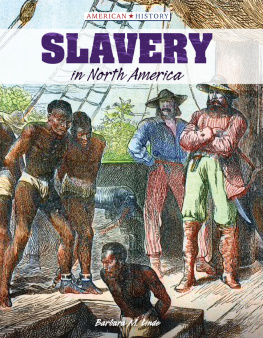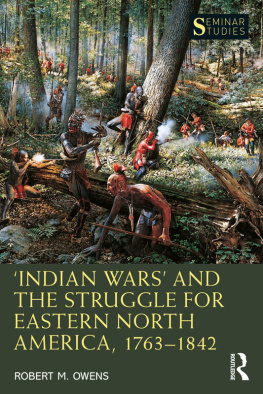
FIGHTING for AMERICA


FIGHTING

for

AMERICA
THE STRUGGLE FOR MASTERY
IN NORTH AMERICA
15191871

JEREMY BLACK

This book is a publication of
INDIANA UNIVERSITY PRESS
Office of Scholarly Publishing
Herman B Wells Library 350
1320 East 10th Street
Bloomington, Indiana 47405 USA
iupress.indiana.edu
Telephone 800-842-6796
Fax 812-855-7931
First paperback edition 2014
2011 by Jeremy M. Black
All rights reserved
No part of this book may be reproduced or utilized in any form or by any means, electronic or mechanical, including photocopying and recording, or by any information storage and retrieval system, without permission in writing from the publisher. The Association of American University Presses Resolution on Permissions constitutes the only exception to this prohibition.
 The paper used in this publication meets the minimum requirements of the American National Standard for Information Sciences Permanence of Paper for Printed Library Materials, ANSI Z39.48-1992.
The paper used in this publication meets the minimum requirements of the American National Standard for Information Sciences Permanence of Paper for Printed Library Materials, ANSI Z39.48-1992.
Manufactured in the United States of America
The Library of Congress has cataloged the original edition as follows:
Black, Jeremy.
Fighting for America : the struggle for mastery in North America, 15191871 / Jeremy Black.
p. cm.
Includes bibliographical references and index.
ISBN 978-0-253-35660-4 (cloth : alk. paper) 1. United States Territorial expansion. 2. Manifest Destiny. 3. Geopolitics North America History. 4. Geopolitics United States History. 5. North America History, Military. 6. Great Britain Colonies America History. 7. France Colonies America History. I. Title.
E179.5.B66 2011
970.01 dc22
2011008159
ISBN 978-0-253-01481-8 (paperback)
ISBN 978-0-253-00561-8 (ebook)
2 3 4 5 19 18 17 16 15 14
For
DENNIS SHOWALTER

CONTENTS
PREFACE & ACKNOWLEDGMENTS
The United States had an undoubted right to settle wherever they pleased on the shores of the Pacific Ocean without being questioned by the English government, and he had really thought that they were at least to be left unmolested on their continent of North America.
Stratford Canning to Robert, Viscount Castlereagh, Foreign Secretary, 28 Jan. 1821
John Quincy Adams, the Secretary of State, was particularly blunt in January 1821 when repulsing the attempt by Stratford Canning, the British envoy, to discuss whether the American government was seeking to establish a new settlement on the Columbia River. Adams asserted Manifest Destiny before the term was devised and was not interested in Cannings discussion of British rights or the 1818 convention between the two powers. Adamss account was to triumph as his work and the efforts of others created a state that spanned the continent. Yet, this process was far from inevitable and this book is a story of conflict, diplomacy, geopolitics, and politics. The prize was mastery in North America, and the eventual result the invention of a United States of America that stretched from ocean to ocean and achieved this mastery. To that end, this book offers a one-volume sweeping geopolitical history of North America from the landing of Spanish troops under Hernn Corts in modern Mexico in 1519 until 1871 when, with the Treaty of Washington and the withdrawal of most British garrisons, Britain in effect accepted American mastery in North America and the North American Question was thereby settled.
Benefiting from adopting the long approach and from studying continuities and discontinuities in this time scale, this history serves to offer an analytical narrative and has, as its central theme, the argument that the fate of North America was not a matter of manifest destiny but was affected by contingencies and, moreover, was fairly unclear until quite late. The purpose, in part, of this book is to undermine exceptionalist and determinist narratives that project the inevitability of U.S. domination over North America, and, instead, to reconceptualize American space from an international perspective. By doing so, and adopting the long-term perspective, Manifest Destiny emerges not as American providence or predestination, but rather as a concept used by a number of competitors and as a descriptor of struggle in history. Moreover, the outcome of U.S. domination seems more contingent throughout the period covered than is suggested by any reference to Manifest Destiny.
Furthermore, this outcome was largely decided only as a result of events in the 1860s, developments that seemed highly unpredictable to contemporaries, both American and foreign. Indeed, the decade 186171 was not a coda but a decisive culmination, with the eventual outcome of the American Civil War (186165) ensuring the maintenance of American unity, and the end both of the prospect of Southern independence and of the reality of Southern autonomy. Secondly, the 1860s were very important because the absence of European intervention in the Civil War helped to secure the results of the Civil War, as well as reflecting, and ensuring, a sense of relative American power. Thirdly, the American intimidation of Emperor Napoleon III and the resulting withdrawal of French forces from Mexico (also a response to European power politics in the shape of Prussian success against Austria in 1866), was, in part, a consequence of Union victory and strength. In Mexico, the other North American civil war of the 1860s, one that was longer than its more famous counterpart and is overly neglected other than by specialists on Mexican history, ended with the conservative, monarchist, pro-French side defeated, and with the liberal, republican, anti-French cause that the Union had wished to win triumphant. Fourthly, Sewards Folly, the American purchase of Alaska and the Aleutian Islands in 1867, marked the effective end of Russian interest in North America and brought America a great expanse of territory and an increased presence in the North Pacific, while also locating British Columbia between two areas of American territory. Lastly, the withdrawal of most British garrisons from Canada after 1871 was in part a result of the Union victory, and marked the effective end of the North American Question, with America clearly dominant in North America and the defense of Canada essentially left to local forces. Canadian Confederation in 1867 was another testimony to the importance of this decade, to the concerns raised by American power, and to the interactions that were so important to developments both across the continent and more widely because Confederation also involved British concerns, priorities, and responses.
Next page











 for
for


 The paper used in this publication meets the minimum requirements of the American National Standard for Information Sciences Permanence of Paper for Printed Library Materials, ANSI Z39.48-1992.
The paper used in this publication meets the minimum requirements of the American National Standard for Information Sciences Permanence of Paper for Printed Library Materials, ANSI Z39.48-1992.